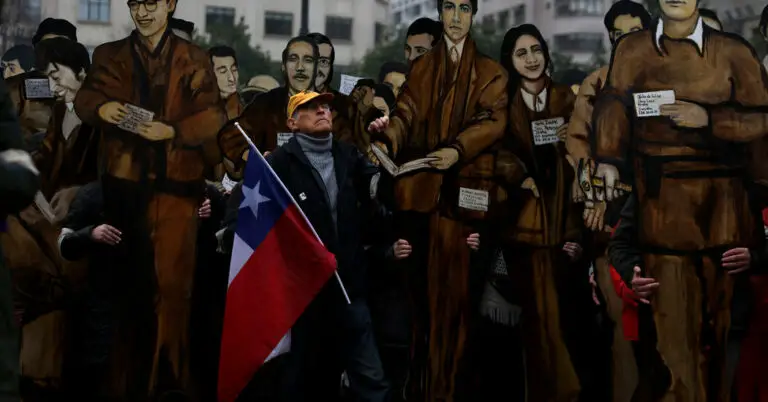Finally, After Decades, Missing Chilean’s Remains Returned to Family
Thirty-six long years have passed since the mysterious abduction and vanishing of Fernando Ortíz. Just recently, his family received a box containing a handful of bone fragments that belong to him.
In 1976, when General Augusto Pinochet held power in Chile, Fernando Ortíz, a 50-year-old professor, was kidnapped alongside fellow communist leaders. They were all taken to a hidden torture center named Simón Bolívar. The secret of this place remained locked away for 30 years.
The black site, located in a remote area east of the capital, was operated by the regime’s intelligence agency, DINA. None of those held there ever came out alive, and for decades, there was no information about their fate.
Among the missing, Fernando Ortíz was one of 1,469 people who disappeared during Chile’s military rule between 1973 and 1990. Out of them, only 307 have been found and identified.
In light of the approaching 50th anniversary of the coup that brought about Latin America’s enduring dictatorship, Chile is set to unveil a national search plan on Wednesday. This initiative aims to locate the remaining missing individuals.
This marks the first time since the Pinochet era that the Chilean government is taking significant steps towards finding the disappeared. Until now, the burden has largely rested on surviving family members, particularly women, who have protested, gone on hunger strikes, and fought legal battles. Only through these efforts have burial sites been revealed.
“The state took them away, and it is the state that has to be responsible for reparation, justice, and sustaining the search,” stated Luis Cordero, Chile’s Minister of Justice and Human Rights.
President Gabriel Boric’s strategy will centralize and digitize scattered judicial case files and archives, utilizing software to cross-reference information. Funding will also support excavations and searches for burial sites that have been delayed due to lack of resources.
The journey towards justice has been long and arduous. Chile’s court system was hindered by an amnesty law from the Pinochet era, which prevented the prosecution of those responsible for human rights abuses until 2000. Special judges have since been assigned to these cases, with hundreds imprisoned as a result.
María Luisa Ortíz, the daughter of Fernando Ortíz, shared, “The idea of their death seeps in slowly.” Families recognize that finding their missing loved ones is a challenging task. Many remains found are mere fragments, due to attempts to hide evidence.
Despite challenges, Chile is making progress. Forensics experts are excavating new sites, and the judiciary is digitizing human rights records. However, extracting information from the military remains a challenge. Some hope lies in approaching former low-ranking agents, whose memories might reveal burial sites.
Even with government involvement, finding and identifying victims may take years. Efforts have been made to uncover hidden truths, like excavations in 2001 that led to the identification of remains.
Closure remains elusive for many families, despite the return of bone fragments. The horrors of the past persist, and the search for truth continues, as the nation strives for justice and remembrance.

